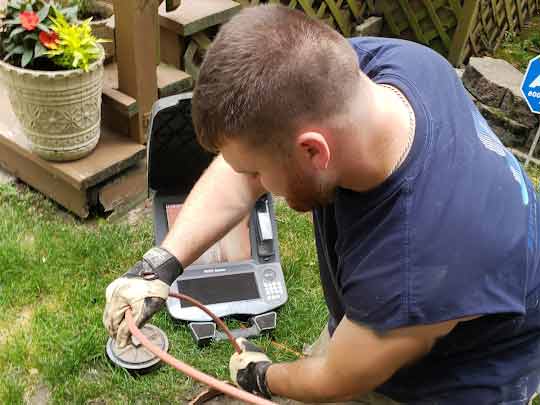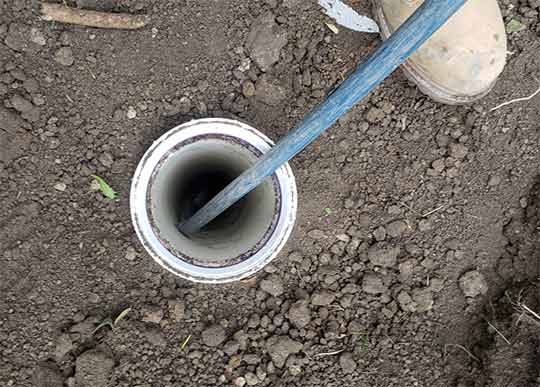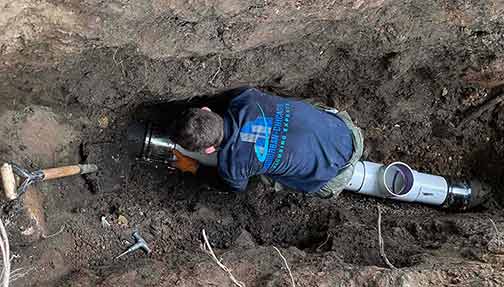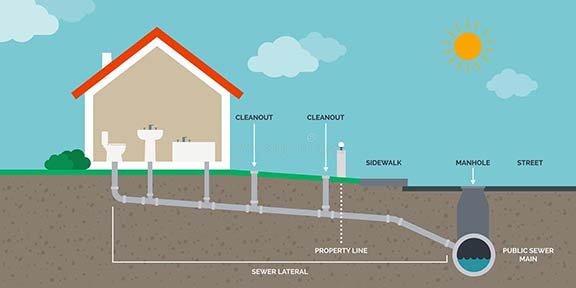
When it comes to maintaining your home, the sewer system is probably one of the last things that come to mind. However, it is one of the most crucial systems in your home, responsible for removing waste and wastewater from your home. A malfunctioning sewer system can cause severe damage to your home and pose a serious health hazard. In this article, we will discuss the role of professional plumbers in protecting your home’s sewer system.
What is a Sewer System?
A sewer system is a series of pipes that transport wastewater and sewage from your home to the municipal wastewater treatment plant. The sewer system comprises the pipe that connects your home to the main sewer line, the main sewer line, and the municipal wastewater treatment plant.
The Importance of Maintaining Your Home Sewer System
Maintaining your home sewer system is essential to ensure that the system functions correctly and efficiently. A malfunctioning sewer system can result in the backup of sewage and wastewater, which can cause foul odors, water damage, and health hazards. Sewage backups can also affect your plumbing system, causing damage to pipes and fixtures and even leading to expensive repairs and replacements.

Professional plumbers play a crucial role in maintaining your home’s sewer system. They have the tools, expertise, and experience necessary to diagnose and fix any issues that might affect your sewer system.
The Role of Professional Plumbers in Maintaining Your Home Sewer System
Professional plumbers play a crucial role in maintaining your home’s sewer system. They have the tools, expertise, and experience necessary to diagnose and fix any issues that might affect your sewer system. Some of the services that professional plumbers offer to ensure your home sewer system runs smoothly are:
Regular Sewer System Inspections
Professional plumbers can conduct regular sewer system camera inspections to identify potential problems before they become severe. They use advanced technology, such as cameras and video inspections, to evaluate the inside condition of your sewer line system and identify any blockages, cracks, or leaks. Early detection of these issues can save you from expensive repairs and replacements in the future.
Sewer Line Cleaning
Sewer line clogging is the most common issue that affects home sewer systems. Professional plumbers have the tools and expertise to clean your sewer line and remove any blockages that might cause backup and other issues. Common methods used to clean sewer lines include hydro jetting and sewer rodding service.
Sewer Line Repairs and Replacement
Sewer line damages can occur due to various reasons, including tree root invasion, pipe corrosion, and soil settling. Professional plumbers can diagnose the issue and determine whether repairs or replacement is necessary. Replacement might be necessary if the sewer line is extensively damaged, corroded or has collapsed.

Professional plumbers play a significant role in maintaining and protecting your home’s sewer system.
The sewer system is an essential part of your home and requires proper maintenance to ensure it runs smoothly. Professional plumbers play a significant role in maintaining and protecting your home’s sewer system. Regular sewer line inspections, sewer line cleaning, and sewer line repairs can save you from expensive replacements in the future. Contact a professional plumber today to keep your sewer system running efficiently.
